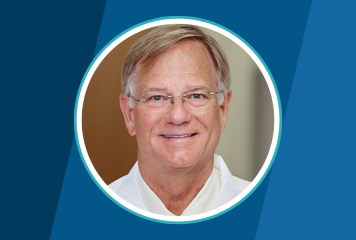Krisda H. Chaiyachati, MD, MPH, MSHP, FACP, is the Senior Medical Director for Care Delivery at Verily, a subsidiary of Alphabet Inc. He leads research and care programs that drive Verily towards its mission to bring the promise of precision health to everyone, every day. He is a board-certified, practicing primary care and internal medicine physician within the University of Pennsylvania Health System. He joined the ABIM Board of Directors in 2023.
Why did you decide to join the ABIM Board of Directors?
Three reasons. Physicians require a standard fund of knowledge to practice high-quality medicine. Yet, what sets that standard is rapidly shifting, complicated in large part by advances in science and the interplay of technology. How we generate evidence, the volume of evidence, what we expect of internists and, as a result, how we deliver care are shifting constantly. ABIM must be thoughtful about how, on what and when we assess physicians within these great contextual changes.
Complicating matters, trust in experts and expertise has come under threat by those within and outside of the profession. It used to be that physicians engendered trust because of their title, earned by their training, experience and knowledge. And physicians would support findings from randomized controlled trials or expertise in specific arenas. These assumptions have come under question – expertise is under question – and not all physicians practice evidence-based medicine. This mistrust was pronounced during the COVID-19 pandemic. ABIM has taken a significant stance by publicly speaking out against the harms of distrusting expertise and science. As an organization who sets the standard for medical knowledge among internal medicine physicians, ABIM’s voice and leadership are critical for countering this concerning trend.
Finally, I am passionate about our physicians contributing to greater health equity. Ensuring that the knowledge physicians possess is based in science that is unbiased and fair is one important way to counter longstanding inequities, bias and discrimination. This may mean that physicians must stop historic practices in medicine. For example, we had to stop race-based estimated glomerular filtration rate calculations because they resulted in differential harm. In my career, I desire a health system that reduces harm and facilitates a health care system for all, not just a few.
What does value-based care mean to you?
Value-based care leads to outcomes that patients want at a reasonable, affordable cost. We have all been patients. And as a patient, you want to be able to make informed decisions about your care, feel healthier and know how much this will cost you. For a myriad of reasons, the goals of value-based care have been elusive.
As physicians, we strive to provide this care when we interact with patients. “Let’s talk about your depression. What’s your goal? What do you value most when undergoing treatment?” These are the types of interactions that we know work and which are ingredients for motivating change. Instead, we are judged by benchmarks that are processes, such as how often have we screened people for depression or ordered an A1c. While these population health goals may be important, these don’t necessarily reflect how patients feel listened to or engaged with, nor are they necessarily outcomes of value. Compounding matters, physicians are promoted to see as many patients as possible during a workday, resorting to 15- or 20-minute appointments where the ability to develop meaningful relationships is hampered by the drive for achieving process measures. Without incentives for goal-setting, trust and understanding patients’ values, we lose a critical foundation for achieving population health-level evidence-based medicine. Connections and relationships are important if we are to expect patients to carry out a care plan.
To achieve this end, we need all of health care’s stakeholders engaged, working in concert to create the right payment, professional training and practice environment where these relationship-building activities are paramount and complemented by evidence-based care. Only then can we truly be on the long-desired path of value-based care.
You work for Verily, a company that looks at applying artificial intelligence (AI) and data science to accelerate evidence generation and enable earlier interventions. Where do you see AI in medicine in the future?
The medical community has only scratched the surface of AI’s future in medicine. The most recent headlines have focused on generative AI, specifically large language models (LLMs), such as Google’s Bard or OpenAI’s ChatGPT. LLMs are popular in the mainstream because they produce relatable content which, dare I say, is fun. For example, it can rewrite a scientific article in iambic pentameter in a few seconds. It can convert office visit notes into the format of a hip-hop song. It can be entertaining. And it has the potential to reduce the burden of administrative tasks. It can generate the first draft of a return-to-work note for a patient or a prior authorization form.
However, it is also well known that LLMs, today, can generate hallucinations when answering fact-based questions. And these hallucinations are responses produced with such speed and stated with such confidence that it makes them believable.
Do I think hallucinations are a solvable technical problem? Yes. I think the way we train the models, the data we use and the validation tools we use to check the quality of LLMs can improve, but it requires physicians’ expertise and engagement. It will be a matter of time before these models improve.
Outside of LLMs, AI is also being developed to predict. This predictive AI has been notably studied for the early detection of sepsis but is also being developed and studied for many other use cases such as detecting movement disorders, depressive symptoms, suicidality and memory disorders.
The evolution and future of AI is both exciting and challenging. We have only begun to imagine the application of AI in health care. At the same time, I don’t think we can have unbridled exuberance. Unchecked, we will run afoul of causing harm and potentially worsening disparities. During this important inflection point in health care’s history, I’m excited to lend my voice and insights from working in the health care and technology sector to ABIM as a Board member.



